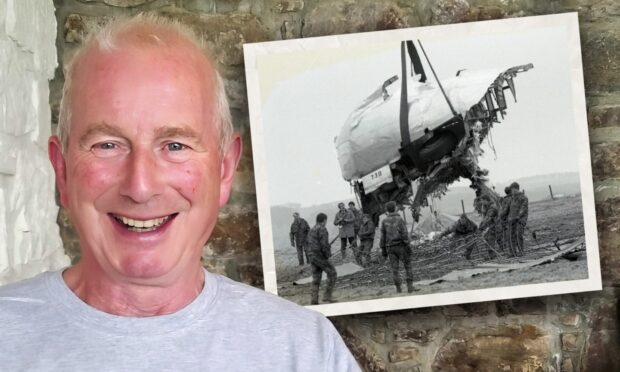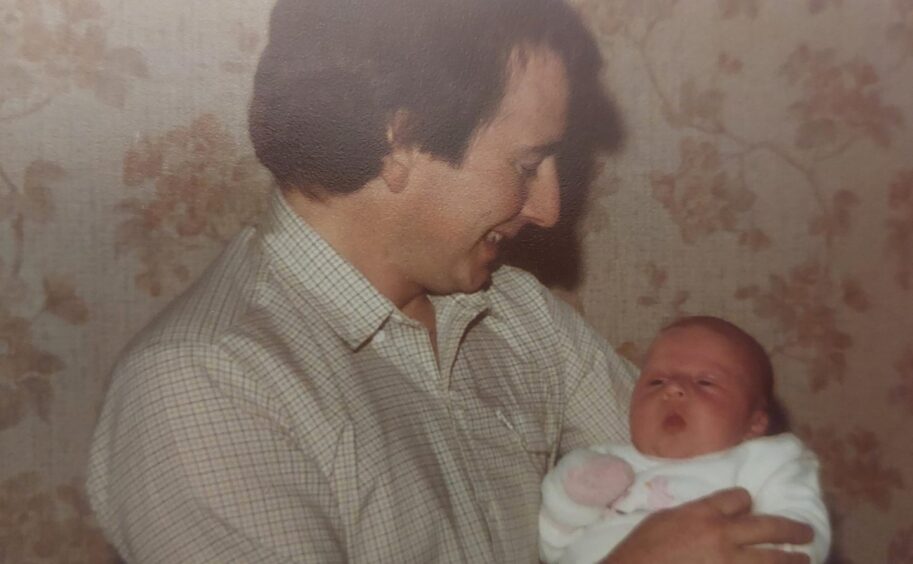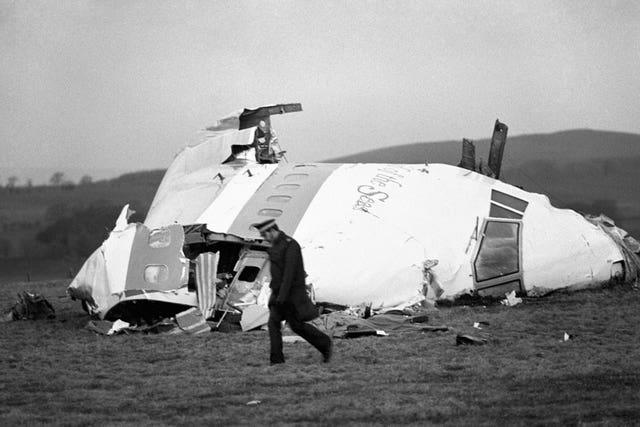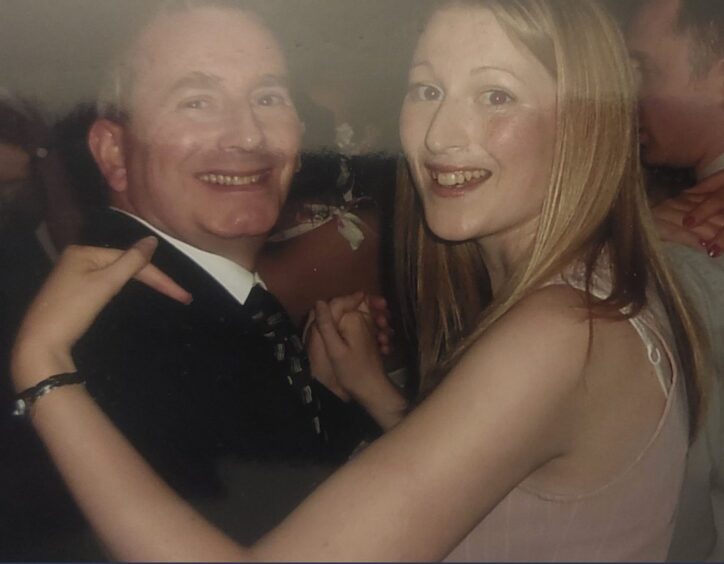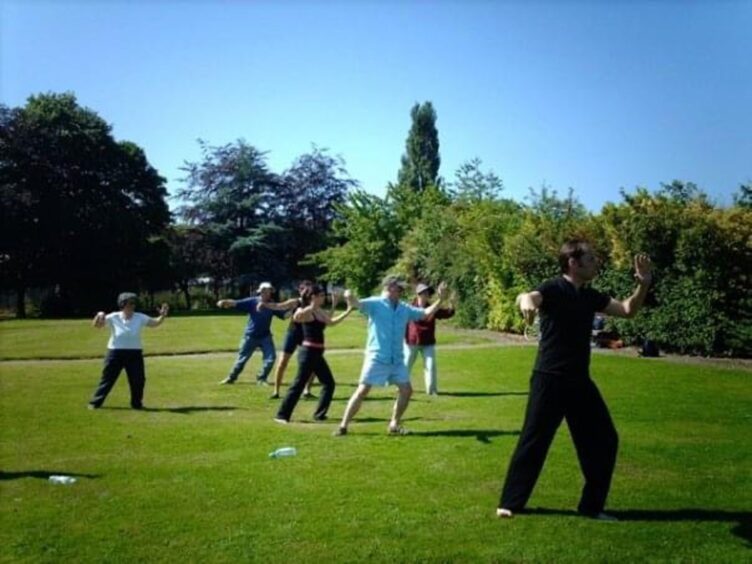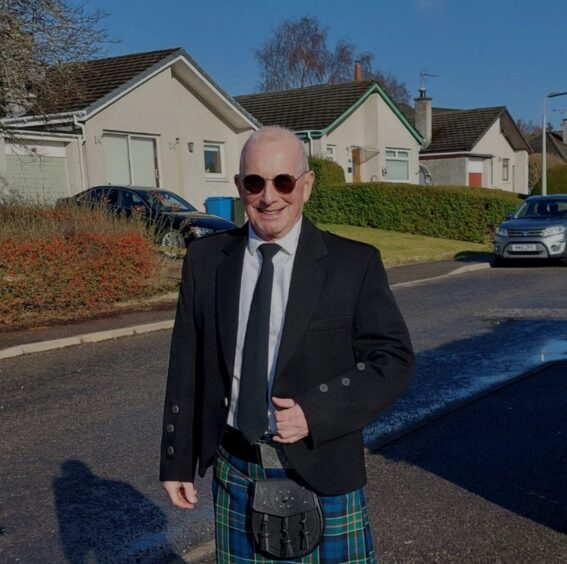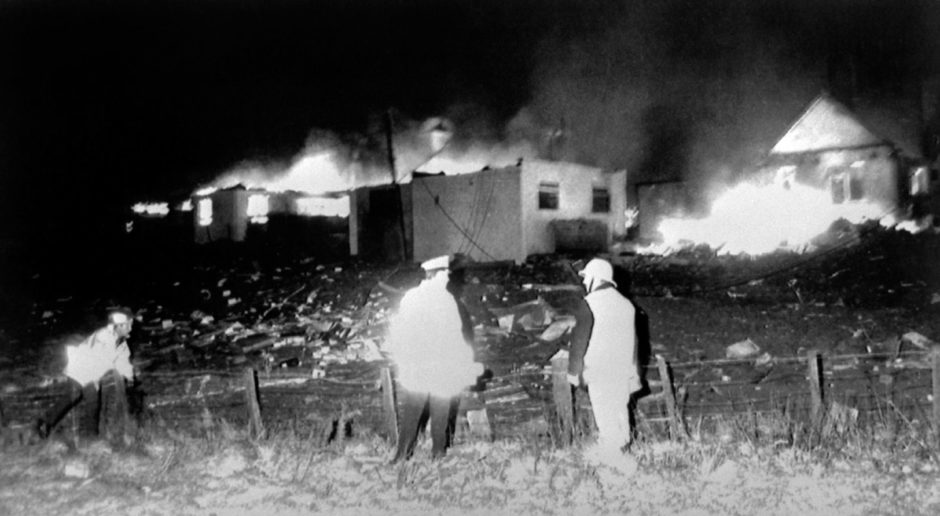There were two George Garscaddens. There was the dad who existed before the Lockerbie disaster, and the man who founded Dingwall Men’s Shed afterwards.
Deeply affected by the horrific events of December 21 1988, George passed away last month age 74.
One of his dying wishes was for his abiding memories of the bombing to be written down and shared at his funeral, so the enduring impact of Lockerbie would never be forgotten.
“My dad lived a wonderful life. He was an incredible dad. I know now as an adult, looking back over his life, that Lockerbie left a deep mark,” said George’s daughter Fiona.
Bridgeton born
George was born in Glasgow on August 1 1949. Son of Geordy and Peggy Garscadden, workers in Clydebank’s Singer Sewing Machine factory, he was one of nine children all sharing a tenement in Bridgeton.
George attended Barrowfield Primary School but preferred the weekends, visiting the “wee Geggie” Premier Picture Hall.
George showed entrepreneurial promise from a young age.
Starting off delivering papers he then took on a milk round, using the opportunity to sell his customers milk and eggs en-route. Such a successful endeavour, he had enough money to pay his sisters half a crown to iron his shirts and brush his shoes for “the dancing”.
On the move
George left school at 14. His family had relocated to the new town of East Kilbride and George thrived in his new home. With a bedroom to himself and access to the countryside he reflected that the move was “the making of him”.
Discovering a love of the outdoors that would later bring him peace, George started cycling far and wide. In 1969 he co-founded East Kilbride Mountaineering club and rambling, especially on cold snowy days, would also become a favourite pursuit.
Fatherhood changed his life
His first “proper job” was with British Home Stores then he worked for a butcher but had no real sense of where he wanted his career to go. However, it was fatherhood, not employment, that changed the trajectory of his life.
George’s only child Fiona was born in 1981.
Wanting more for his family they moved to Adrossan. Emulating the hands-on approach shown by his own dad, George wanted Fiona to have the best possible life. He enlisted in night classes and qualified as a hygiene inspector.
Though he continued in that field for the rest of his career, George loved to broaden his skills and to take on hobbies. Fiona remembers weekends at the gardening club project, sailing lessons and curling “to name but a few”.
Lockerbie disaster
In the mid-80s George and his family moved to Lockerbie. Initially a positive move the family were living there in December 1988 when Pan Am Flight 103 crashed, causing devastation in the small town.
There were no survivors from those on board the plane, and 11 fatalities from Lockerbie. In total 270 lives were lost.
It would later come to light that a bomb had been detonated on the New York-bound flight. The Boeing 747 exploded, crashing down on Lockerbie.
The following minutes, days, weeks and years profoundly affected George, who immediately sprang into action.
There to help
Not knowing the full extent he optimistically thought a flask of something warm, and some biscuits, would help.
Instead, he was met with abject horror, “yet didn’t shrink back”.
Helping move bodies to cold storage among other unthinkable tasks, George was irreparably marked by the Lockerbie plane crash.
Until his dying moments, he was thinking about the events of December 21 1988 and asked his partner Mary to take down his memories. Copies were handed out at his funeral service.
With Fiona’s permission, you can listen to his final memories here.
‘Just say we’re from the Borders’
Although the family remained in Lockerbie by 1992 they needed a change. Hotel health inspector work opened the door for George and Fiona to move to Dingwall.
“Dad was in his element in Dingwall. He loved sharing his favourite activities with others and the move allowed that to happen,” said Fiona, “And he also became a community councillor.
“But the one thing he took with him were the memories of Lockerbie.”
Fiona remembers George instructing her to say she had come from the Borders, if asked where they used to live.
“Just never Lockerbie. It was too hard to keep going over and over things. People who weren’t there have a natural but sometimes a morbid curiosity about it.
“But we knew people who died. My nursery teacher was killed. I can now see the impact it had on my dad.”
Peaceful pass times
The move allowed George to explore new hobbies. He joined the Caberfeidh curling club and tried Tai Chi, in Inverness.
Later breaking away from that original class, George helped his friend set up a similar Tai Chi group in Dingwall.
On what seemed like a lifelong quest for inner peace, he also took up yoga. Combining his love of travel, religion, meeting people and study he then travelled to China to study Tai Chi and Daoism.
Dingwall Men’s Shed
Forever shaped by the events of the worst aviation disaster and terror attack on British soil, George was an early adopter of the Men’s Shed movement. He understood the profound importance of robust mental health for men so started Dingwall’s first branch in 2017.
“I can see now that everything from Lockerbie onwards was somehow him working through the things he had seen and heard. Men’s Shed helped others speak about their feelings,” added Fiona. “Though in truth dad didn’t fully do this until his last few days of life.”
‘All clear’
In late 2020, following the death of her husband, fellow Men’s Shed founding member Andy, Mary Foley downsized her home. George offered to help her complete the renovations.
The two-year task brought Mary and George closer, leading to a confession that perhaps he and Mary would become “more than just friends.”
“I remember saying, ‘well I saw that coming,’ though I think it was genuinely a surprise to dad,” said Fiona.
Falling in love, they began planning their future but in June 2022, after only two years together, George was diagnosed with a slow-growing Lymphoma.
Highland Hospice
With an optimistic prognosis George was treated as an outpatient and by last Christmas was given the “all clear.”
“We were all so pleased,” said Fiona. “He was scanned in February – all clear. Scanned in May, all clear. But in June he was experiencing back pain.”
Initially believing it to be a kidney infection he was given antibiotics but his quick-thinking GP ordered a CT scan. This time the news wasn’t so good.
A new treatment regime followed but by October his condition deteriorated.
Initially admitted to Raigmore Hospital he spent his final days in the peace and “amazing care” of Highland Hospice.
‘Never forget Lockerbie’
Among his final requests was that Mary take down his memories of living through the horrific events of Lockerbie.
“It was actually hugely impactful to finally understand that he held onto these memories, in forensic detail, for 35 years,” said Fiona. “He just didn’t want all the theories and all the updates to take away from the reality, on the ground, back then.
“At the heart of it, people died. And dad never wanted anyone to forget that.”
Lasting legacy
He passed away on November 8, with Fiona and Mary by his side.
“We planned a green funeral and he came up with the idea of a Ross County ceremony. Something they had never done before.
“We played music and held hands listening to the first play of the new Beatles song which was in his words perfect!” said Fiona.
His Lockerbie memories were handed out to mourners.
Both Fiona and Mary take comfort in knowing he leaves a legacy behind.
Mary said: “Women talk face-to-face, but men talk shoulder-to-shoulder. This will be another legacy of George’s life.”
George was laid to rest in a natural burial site, with his faithful Labradoodle Blue, who died earlier this year, by his side.
